Đề Cương Ôn Tập Cuối Học Kì 1 Tiếng Anh Lớp 11 Global Success (06.06.2024)
Thầy Thắng
ĐỀ CƯƠNG LỚP 11
15
Ngày đăng: 06-06-2024 14:40:04
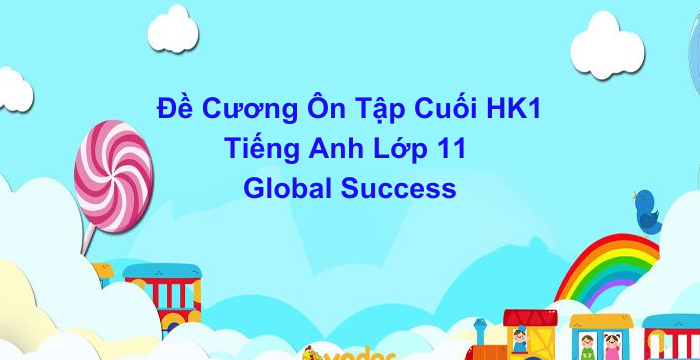
ĐỀ CƯƠNG ÔN TẬP KIỂM TRA CUỐI KỲ I
Trường THPT Thái Phiên, TP Đà Nẵng, 2023 - 2024
A. NỘI DUNG ÔN TẬP KIỂM TRA CUỐI KÌ I : TỪ Unit 1 Unit 5
I. SKILLS (READING, SPEAKING, LISTENING, WRITING ):
Topics: The generation gap; Cities of the future; ASEAN and Viet Nam; Global warming.
II. LANGUAGE
* Pronunciation: Stress in words of two, three or more than three syllables
* Vocabulary: Topics: A long and healthy life; The generation gap; Cities of the future; ASEAN and Viet Nam; Global warming .
* Grammar
- Modal verbs: must, have to, should
- Past simple, present perfect
- Gerund as subject and object.
- Present participle & past participle
Kiểm tra Nói (Speaking): 2 điểm : kiểm tra tại lớp học
Kiểm tra Viết ( Listening, Language, Reading, Writing) : 8 điểm: kiểm tra tập trung
B. MỘT SỐ ĐỀ ÔN TẬP
SAMPLE TEST 1
I. PHẦN TRẮC NGHIỆM
LISTENING
Part 1. Listen to the passage and decide whether each sentence is true (T) or false (F). You will hear the recording twice. (1.0 point).
Question 1. Parents are advised to help their busy teenage children with planning their day.
Question 2. All kinds of snacks contain a lot of high fat.
Question 3. There are two kinds of vitamins mentioned in the passage.
Question 4. Fried foods and high fat desserts should be avoided completely in the developmental period of the youngsters.
Part 2. What issue are these people talking about? Choose the best answer A, B, C or D. You will listen TWICE. (1.0 point).
Question 5. Person 1
A. air pollution B. water pollution C. overpopulation D. global warming
Question 6. Person 2
A. global warming B. water pollution C. unemployment D.crime
Question 7. Person 3
A. poverty B. overpopulation C. war D. air pollution
Question 8. Person 4
A. crime B. traffic C. air pollution D. housing
LANGUAGE
Choose the word that has a different stress pattern in each of the following sentences. ( 0.5 point )
Question 9. A. balance B. disease C. control D. complaint
Question 10. A. infectious B. physical C. important D. organic
Choose the best answer to each of the following questions or do as directed. (1.5 points)
Question 11. She said she met you once at the Hilton last year. __________ since then?
A. Have you met her B. Did you meet her C. Were you met her D. Had you met her
Question 12. __________a cup of coffee in her hands, Jyoti watched us play cricket.
A. Hold B.Holding C. Held D. To hold
Question 13. Singapore has made a huge __________to scholarships for ASEAN’s students
A. decision B. effort C. contribution D. arrangement
Question 14. 30 minutes is enough time to use social media because the screens of electronic devices _______ blue lights
A. give up B. give off C. take in D. take up
Question 15. She's extremely well-__________ for the volunteering position
A. qualified B. qualification C. qualifying D. qualify
Question 16. Choose the word(s) CLOSEST in meaning to the underlined phrase.
Many young children are spending large amounts of time surfing the Internet without being aware of its detriment to their school work.
A. harm B. advantage C. change D. addiction
READING
Read the following passage and choose the best answer for each of the blanks from 17 to 20. (1 point)
Everyone knows that exercise is good for the body and the mind. We all want to keep fit and look good, but too many of us take (17) __________ the wrong sport and quickly lose interest. So now fitness experts are advising people to choose an activity that matches their character.
For instance, those (18)____________ like to be with other people often enjoy golf or squash, or playing for a basketball, football or hockey team. (19) ___________, you may prefer to go jogging or swimming if you’re happier on your own.
Do you like competition? Then try something like running, or a racket sport such as tennis. If, on the other hand,winning isn’t important to you, then activities like dancing can be an enjoyable (20)__________ without the need to show you’re better than everyone else.
Finally, think about whether you find it easy to make yourself do exercise. If so, sports like weight training at home and cycling are fine. If not, book a skiing holiday, Taekwondo lessons, or a tennis court. You’re much more likely to do something you’ve already paid for!
Question 17. A. down B. out C. in D. up
Question 18. A. who B. whose C. which D. what
Question 19. A. Therefore B. However C. Moreover D. While
Question 20. A. challenge B. victory C. defeat D. score
Read the following passage and choose the best answer to each of the questions from 21 to 24. (1 point)
Today I’d like to begin a discussion on the problem of the heating up the earth. First, we’ll touch on the relationship between fluorocarbons and the ozone layer. You probably remember that the ozone layer is the protective shield around the earth. It is important to all life, because it filters out harmful ultraviolet light from the sun. Ozone itself, a form of oxygen, is regularly made by the action of the sun in the upper atmosphere. It is also regularly destroyed by natural chemical processes.
The problem now is that too much of the ozone layer is being destroyed. Scientists suspect that certain chemicals, such as fluorocarbons, are contributing to the depletion of the ozone layer. And how do we use fluorocarbons? The most common uses are in spray cans and cooling systems. The chemical pollution from these fluorocarbons can account for some of the ozone losses that have been reported. There are, however, new studies linking the sun itself to the depletion of the ozone layer. We’ll go into that new study more next time.
Question 21: Who is the most likely speaker?
A. A mechanic B. A chemist C. A professor D. A doctor
Question 22: What is the most important purpose of the ozone layer?
A. Shielding the sun B. Protecting the earth
C. Destroying chemicals D. Providing fluorocarbons
Question 23: What does the word “depletion” in paragraph 2 probably mean?
A. Danger B. provision C. departure D. destruction
Question 24: The speaker’s main topic is_________ .
A. air-conditioning systems B. fluorocarbons and the ozone layer
C. ultraviolet light D. the use of spray cans
WRITING
Choose the letter A, B, C, or D to indicate the underlined part that needs correction in each of the following sentences. (0.5 point)
Question 25. Warning about the danger, the campers made a quick decision to lift their tents.
Question 26. Despite of having little chance to win, you should never give up your dream of becoming a star.
II. PHẦN TỰ LUẬN:
WRITING
A. Rewrite each of the sentences so that it is closest in meaning to the original one, using the words in brackets. (0.5 point)
Question 27. Hannah usually draws pictures of wild flowers as a hobby. (Hanna’s hobby)
…………………………………………………………
Question 28. It is not necessary for you to submit your assignment by Monday. (have to)
…………………………………………………………
B. Write a complete and meaningful sentence with the cues given. You can make any changes if necessary. (1 point)
Question 29. Recycle / consider / effective solution / pollution problem. …………………………………………………………
Question 30. Traffic / be now / flow smoothly again, thanks / computer-controlled system.
…………………………………………………………
--------------------------HẾT------------------------
SAMPLE TEST 2
I. PHẦN TRẮC NGHIỆM
LISTENING
Part 1. Listen to two students talking about Global warming. Decide whether the statements are true (T) or false (F). You will hear the recording twice. (1.0 point)
Question 1: The USA burns over 700 million tons of oil every year.
Question 2: The world used 35.5 billion barrels of oil in 2019
Question 3: Oil consumption goes up half of billion barrels every year.
Question 4: The jumble sales in the USA dropped from 2019 to 2020.
Part 2. Listen to some information about a student’s health and habits. Circle the best answer A, B, C or D. You will listen TWICE. (1.0 point)
Question 5. What did Matt love doing in his free time?
A. Eating out much with his family
B. Hanging out at fast food restaurants
C. Spending time with his family
D. Watching TV and playing video games
Question 6. Why does Matt want to live healthier?
A. His uncle was diagnosed with a heart disease.
B. His grandfather passed away.
C. He has just moved to live with his extended family.
D. He was scared of getting diseases
Question 7. How does Matt eat more healthily?
A. He stops eating foods with fat and salt.
B. He has a quick breakfast before going to school.
C. He changed his attitude to health
D. He wakes up earlier to have breakfast.
Question 8. Why does Matt go to cooking class?
A. Because he wants to spend time with his mother.
B. Because he wishes to become a good cook.
C. Because there’s no fast food restaurant near his college.
D. Because he thinks he should know how to cook.
LANGUAGE
Choose the word that has a different stress pattern. (0.5 point)
Question 9. A. exchange B. process C. strengthen D. offer
Question 10. A. generational B. interpersonal C. discriminative D. educational
Choose the best answer to each of the following questions or do as directed. (1.5 point)
Question 11. ________by the visitor, the clavichord could not be used.
A. Broken B. Break C. Breaking D. Broke
Question 12. It’s important for the developed countries to reduce energy __________ as much as possible.
A. exhaustion B. destruction C. consumption D. waste
Question 13. The ________ arises when Jack and his parents have considerable disagreement on his choice of university.
A. discrimination B. conflict C. agreement D. gap
Question 14. In regions of volcanoes, houses should be built with _________ materials.
A. destroyed B. destructible C. indestructible D. destroying
Question 15. I suggest __________ the hospital before _________ the police to look for him.
A. call – ask B. to call – to ask C. calling – asking D. to call – asking
Question 16. Choose the word CLOSEST in meaning to the underlined word.
Our communication environment has changed drastically in the last 10 years.
A. extremely B. slightly C. moderately D. completely
READING
Read the following passage and choose the best answer for each of the blanks from 17 to 20. (1 point)
Different relationships have effects on teenagers in many ways. Friends influence teenagers almost the same amount as their parents. Teenagers go to their friends for help or to ask questions that they could not ask their parents about. Most of their friends give them good advice. In most cases, they tell their friends how to dress and act when being around certain people.
Love relationships just make it even harder for a teenager to get a good education. Some start to fail in school because they are hanging out with their boyfriends or girlfriends instead of doing their work.
Parents have a big influence on teenagers because their children look up to them and the majority of them grow up to act and do things just like their parents did with them. Children who have experienced with a family break-up may have lower achievements than children brought up in an intact family.
As previously stated, teenagers are affected by many relationships which involve their friends, family, and their love relationships. The relationships affect them so much that most teenagers change their ideas about how they should live their lives in a different way and to change their future goals. They should be influenced to help themselves or to help others.
Question 17. Relationships can ________.
A. influence teenagers in many aspects of their lives.
B. help teenagers to decide the future goals in love relationships.
C. help others to form relationships.
D. help teenagers to follow their future goals with their friends and family.
Question 18. Teenagers go to their friends in order to ________.
A. impact them in various ways and the same amount.
B. ask how to dress when being around certain people.
C. have different relationships that their parents can't offer.
D. ask for help or advice that their parents can't give them.
Question 19. Love relationships may make a teenager harder to get a good education because ________.
A. their boyfriend or girlfriend may make them fail in school
B. they tell their boyfriend or girlfriend how to dress to how to act
C. they hang out with their boyfriend or girlfriend instead of studying
D. they try to do their work instead of hanging out with their boyfriend or girlfriend.
Question 20. The main idea of the passage is ________.
A. the effects of love relationships on teenagers' study.
B. the impact of relationships on teenagers’ lives.
C. the role of parents in their children’s lives.
D. the impact of relationships on adults and teenagers
Read the following passage and choose the best answer to each of the questions from 21 to 24. (1 point)
ENVIRONMENTAL CRIME
We are probably all guilty at some point in our lives of not caring for the environment as much as we should. Perhaps we drop litter without thinking, or cause (21) ________ by using our cars when it’s not necessary. However, the real environmental criminals are those big businesses (22)_________ ignore the law. For many years now, (23) __________have attempted to protect the environment by making businesses responsible for making sure that the chemical they use don’t add to the (24) __________of the environment. The problem for businesses is that the protection of the environment costs money, and businesses will always try to lower their costs if they can
Question 21. A. damage B. pollution C. accidents D. trouble
Question 22. A. who B. whose C. which D. when
Question 23. A. politicians B. politics C. parties D. residents
Question 24. A. induction B. construction C. instruction D. destruction
WRITING
Choose the letter A, B, C, or D to indicate the underlined part that needs correction. (0.5 point)
Question 25. Jane has not rarely missed a party since she was fifteen years old.
Question 26. If you want some useful advice, you have better talk to your parents about your problem.
II. PHẦN TỰ LUẬN
WRITING
A. Rewrite each of the sentences so that it is closest in meaning to the original one or do as directed. (0.5 point)
Question 27. The woman was sitting next to my mom. She is a famous youtuber in the beauty field. (Use Present Participle to rewrite the sentence) ………………………………………………………………
Question 28. Last week, the garage serviced Julie’s car.
………………………………………………………………
B. Write a complete and meaningful sentence with the cues given. You can make any changes if necessary. (1 point)
Question 29. smart cities, / Al technologies / be installed / help / city /operate / more / efficient.
→ ……………………………………………………
Question 30. ASEAN / aim/ promote / economic growth,/ regional peace /as well as / provide / opportunities / its members.
→ ……………………………………………………
--------------------------HẾT------------------------
SAMPLE TEST 3
I. PHẦN TRẮC NGHIỆM
LISTENING
Part 1. You will hear the following talk. Decide whether the statements are true (T) or false (F). You will hear the recording twice. (1.0 point)
Question 1: For those looking for some fun, the center has a heated outdoor pool with five distinct water slides.
Question 2: We only exercise bikes, weight machines as well as daily aerobics and jazz dance classes
Question 3: We'll be pleased to offer you an exercise program that meets your demands from our fitness experts.
Question 4: You may not book the hall for use by you and your friends or join local sporting groups or sign up for tournaments.
Part 2. You are going to hear the following conversation.
Choose the correct answer A, B, C, or D to complete each of the following questions from 5 to 8. You will hear the recording twice. (1.0 point)
Question 5. What has the man begun to do?
A. He’s begun to play sports.
B. He’s begun to go to the gym.
C. He’s begun to think positively.
D. He’s began to eat good and fresh food.
Question 6. How does the man try to eat the meals instead of one or two big meals a day?
A. He eats as much as he can.
B. He eats big, regular meals.
C. He eats small, regular meals.
D. He eats normal meals like everyday.
Question 7. What kind of food does the man usually eat now?
A. a little fruit and vegetables .
B. fruits only.
C. vegetables only.
D. lots of fruit and vegetables.
Question 8. What does the woman love to eat?
A. fruit and vegetables. B. sugary foods such as cakes.
C. more sweet potatoes. D. more sweet juice.
LANGUAGE
Choose the word that has a different stress pattern in each of the following sentences. ( 0.5 point )
Question 9. A. expect B. provide C. become D. value
Question 10. A. emission B. quality C. collection D. museum
Choose the best answer to each of the following questions or do as directed. (1.5 points)
Question 11. I have been very ________ up to this point, but I am going to lose my temper if you don't find my baggage immediately.
A. impatiently B. impatient C. patient D. patiently
Question 12. _______ for energy, fossil fuels release CO2 and other greenhouse gases.
A. burn B. to burn C. burnt D. burning
Question 13. The smart technologies will help save much energy, reduce air _________ and fight climate change.
A. pollute B. pollution C. polluted D. pollutants
Question 14. Singapore has made a huge _________ to scholarships for ASEAN’s students.
A. contribution B. decision C. effort D. arrangement
Question 15. The new underground has allowed ________ to get around more easily.
A. rich people B. students C. city dwellers D. tour guides
Question 16. Choose the word CLOSEST in meaning to the underlined word.
More pedestrian zones for walking and cycling paths will be made available for people in all neighborhoods.
A. cheap to buy B. easy to find C. convenient to go D. difficult to locate
READING
Read the following passage and mark the letter A, B, C, or D to indicate the correct word or phrase that best fits each of the numbered blanks from question 17 to 20.
In the future, cities will experience many changes to adapt to (17) ________ populations and environmental concerns. These cities will use advanced technologies to make life better for the people (18) ________ live there. They will have smart transportation systems that are more efficient and include things like self-driving cars and improved public transportation. The cities will also focus (19) ________ being more environmentally friendly by using renewable energy sources and designing buildings that are good for the environment. (20) ________ , there will be a greater emphasis on including everyone in city life, with better access for people with disabilities and opportunities for people to be involved in decision-making through digital platforms. Overall, the cities of the future will aim to create a better balance between technology and the well-being of the people who call them home.
Question 17. A. grown B. grew C. grow D. growing
Question 18. A. which B. who C. when D. where
Question 19. A. on B. about C. of D. in
Question 20. A. Additionally B. Consequently C. However D. Therefore
Read the following passage and mark the letter A, B, C, or D to indicate the correct answer to each of the questions from question 21 to 24.
In the cities of the future, people will experience big changes in their everyday lives. These urban residents will be part of a highly advanced and connected environment, where new technologies and innovative infrastructure come together to make city life easier and more efficient.
Future cities will have smart systems that use resources well, make getting around easier, and help protect the environment. Buildings will be energy-efficient and have smart sensors that adjust things like temperature and lighting based on how many people are there. This will save energy and reduce the amount of pollution. Transportation systems will be well-connected, so people can easily move from one place to another. Electric and self-driving cars will also be common, which means less traffic and less air pollution.
In addition, technology will change the way people interact with their city. Advanced augmented reality (AR) systems will show digital information on top of the real world, giving people useful and personalized suggestions. They will also be able to navigate the city with the help of interactive holographic displays that show important places, public transportation options, and real-time traffic updates. Also, there will be fast internet everywhere, so people can easily communicate and connect everyday objects to the internet to make life easier.
But there will also be challenges along with these advancements. People in future cities will need to adapt to new complexities and risks. As technology becomes more important for critical infrastructure, there will be a bigger risk of cyber-attacks and data breaches. It will be important to have strong security measures to protect people’s privacy and keep their information safe from bad actors.
Question 21. Which of the following can be the best title for the passage?
A. The Challenges of Future Cities
B. The Benefits of Advanced Technologies in Cities
C. Urbanization and Its Impact on Everyday Life
D. Exploring the Possibilities of Smart Cities
Question 22. What are some features of future cities mentioned in the passage?
A. Historical architecture and traditional infrastructure.
B. Limited availability of resources and inefficient transportation systems.
C. Smart systems, energy-efficient buildings, and well-connected transportation networks.
D. Lack of internet connectivity and minimal technological advancements.
Question 23. The word "they” in paragraph 3 refers to ________.
A. people
B. personalized suggestions
C. Advanced augmented reality (AR) systems
D. interactive holographic displays
Question 24. Which of the following is not true according to the passage?
A. Future cities will have energy-efficient buildings with smart sensors.
B. Transportation systems in future cities will be well-connected.
C. Augmented reality (AR) systems will not be used widely in future cities.
D. Future cities will have fast internet connectivity.
WRITING
Choose the letter A, B, C, or D to indicate the underlined part that needs correction. (0.5 point)
Question 25. Urban life is seeming more exciting to young people.
Question 26. Breathed heavily, the runner entered the final lap of the race.
II. PHẦN TỰ LUẬN
WRITING
A. Rewrite each of the sentences so that it is closest in meaning to the original one or do as directed. (1.0 point)
Question 27.The hairdresser cuts Rita’s hair about twice a year.
→………………………………………………………
Question 28. You are not allowed to use mobile phones in the examination room. (Use ONE suitable Modal to rewrite the sentence)
→ ……………………………………………………
B. Write a complete and meaningful sentence with the cues given. You can make any changes if necessary. (1 point)
Question 29. Stop/ use/ private cars/ urban areas/be / good solution / many environmental problems.
→ …………………………………………………
Question 30. /social media campaign /have / significant impact / raise awareness /environmental issues.
→ ……………………………………………………
--------------------------HẾT------------------------
SAMPLE TEST 4
I. PHẦN TRẮC NGHIỆM
LISTENING
Listen to a speech and decide whether the following statements are true (T) or false (F). You will hear the recording TWICE. (1.0 point)
Question 1. Eating properly only helps you avoid many health problems.
Question 2. Processed meats, packaged meals, takeout food, and sugary snacks are popular in Western meals.
Question 3. Alzheimer’s disease can be caused by an unhealthy diet.
Question 4. Increasing the amount of sugar and vegetables may help to improve mood and lower your risk for mental health problems.
Listen to a talk about cities in the future and choose the best answer to each question. You will hear the recording TWICE. (1.0 points)
Question 5. Where will the future citizens most likely live?
A. on lakes and rivers B. on seas and oceans C. underground D. under the sea
Question 6. What percentage of people will have to pay for home heating?
A. around 80% B. around 60% C. around 40% D. around 20%
Question 7. What is NOT mentioned as part of the complexes?
A. factories B. parks C. homes D. schools
Question 8. What will the city structure be like?
A. changing B. flexible C. fixed D. simple
LANGUAGE
Choose the word that has a different stress pattern in each of the following sentences. ( 0.5 point )
Question 9. A. volunteer B. understand C. develop D. represent
Question 10. A. increase B. surprise C. value D. project
Choose the best answer to each of the following questions or do as directed. (1.5 points)
Question 11. Most people talk too much and don’t realize how important _________ is.
A. to be listened B. to be listening C. have listened D. listening
Question 12. In some cultures, women don’t get an education. They _________ stay at home and do all the household chores.
A. shouldn’t B. ought C. should D. have to
Question 13. We need to be _________ speakers because every company appreciates the ability to present ideas in front of an audience
A. confidence B. confide C. confidential D. confident
Question 14. ________ means changes in the earth’s weather, including changes in temperature, wind patterns and rainfall.
A. global warming B. ecological imbalance
C. greenhouse effect D. climate change
Question 15. Some special devices will be_________ at crossroads to help the city operate efficiently.
A. invented B. transported C. installed D. built
Question 16. Choose the word CLOSEST in meaning to the underlined word.
In Thailand, it's against the law to litter on the pavement. If you are caught, you can be fined up to $2000 Baht.
A. illegal B. immoral C. evil D. wrong
READING
Read the following passage and choose the best answer for each of the blanks from 17 to 20. (1 point)
ASEAN, which (17) ________ for the Association of Southeast Asian Nations, is a regional organization composed often countries in Southeast Asia. Founded in 1967, ASEAN's main objective was to promote cooperation and integration among its member states. It aims to enhance regional peace, stability, and economic growth through various means such as dialogue, diplomacy, and collaboration. ASEAN member countries include Brunei, Cambodia, Indonesia, Laos, Malaysia, Myanmar, the Philippines, Singapore, Thailand, and Vietnam. These nations work together (18) ________ a wide range of issues, including trade, security, cultural exchange, and social development. They strive to foster closer ties through regular meetings, summits, and the establishment of various agreements and frameworks.
As a diverse and dynamic region, ASEAN offers numerous opportunities for economic development and (19) _______ exchange. Its combined population of over 650 million makes it one of the largest markets in the world. (20) ________ , ASEAN's strategic location has contributed to its emergence as a hub for international trade and investment.
(Adapted from Nikkei Asia)
Question 17. A. sets B. stands C. accounts D. calls
Question 18. A. in B. at C. of D. on
Question 19. A. culturally B. cuture C. cultural D. cutured
Question 20. A. Moreover B. However C. Therefore D. Although
Read the following passage and choose the best answer to each of the questions from 21 to 24. (1 point)
Vietnam maintains strong relationships with other Southeast Asian countries, fostering cooperation and mutual benefits across various areas. Bilateral relations between Vietnam and its Southeast Asian counterparts are characterized by shared historical, cultural, and geographical ties. The country shares borders with Cambodia and Laos, and maritime boundaries with Malaysia, Indonesia, and the Philippines. These geographical proximities have facilitated extensive people-to-people exchanges, trade, and cultural interactions throughout history. Vietnam’s relationships with neighboring countries are built on principles of mutual respect, non-interference, and peaceful coexistence. The country places importance on maintaining peaceful and stable relationships to contribute to regional security and development. It actively seeks to resolve any disputes through diplomatic channels and regional frameworks.
Economically, Vietnam has forged robust trade and investment ties with its Southeast Asian partners. Bilateral and multilateral trade agreements, such as the ASEAN Free Trade Area (AFTA) and the Regional Comprehensive Economic Partnership (RCEP), have facilitated greater market access and increased economic cooperation among member states. Vietnam also collaborates with other Southeast Asian countries in addressing common challenges and pursuing shared goals. Environmental conservation, disaster management, transnational crime prevention, and regional security cooperation are among the areas of collaboration. Through mechanisms such as ASEAN-led initiatives, joint military exercises, and cultural exchange programs, Vietnam actively contributes to building trust, fostering understanding, and strengthening cooperation among Southeast Asian nations.
(Adapted from Vietnam Economic Times)
Question 21. Which of the following can be the best title for the passage?
A. Vietnam’s Economic Relations with Southeast Asia.
B. Cultural Exchange and Cooperation in Southeast Asia
C. Vietnam's Role in ASEAN and Regional Development.
D. Bilateral Trade Agreements in Southeast Asia.
Question 22. The word "facilitated" in paragraph 1 is closest in meaning to ________.
Question 23. According to the passage, how does Vietnam seek to resolve disputes with its neighboring countries?
A. Through the military intervention.
B. Through diplomatic channels and regional frameworks.
C. By imposing economic sanctions.
D. By seeking help from international organizations.
Question 24. Which of the following is not true according to the passage?
A. Vietnam shares borders with Cambodia, Laos, Malaysia, Indonesia, and the Philippines.
B. Vietnam emphasizes peaceful coexistence and non-interference in its relationships with neighboring countries.
C. Economic cooperation among Southeast Asian nations is facilitated by trade agreements like AFTA and RCEP.
D. Vietnam is not actively engaged in addressing common challenges with other Southeast Asian countries.
WRITING
Choose the letter A, B, C, or D to indicate the underlined part that needs correction in each of the following sentences. (0.5 point)
Question 25. They succeeded to write an article about the important role of ASEAN. Question 26. Young people nowadays pay attention to learn different skills such as leader skills or problem-solving skills.
II. PHẦN TỰ LUẬN:
WRITING Rewrite each of the sentences so that it is closest in meaning to the original one. (0.5 point)
Question 27. He would rather eat vegetables and fruits than eat meat. He prefers …………………………………………………………………...
Question 28. This factory had dumped a lot of rubbish on the beach. It was strongly criticized for that.
→ This factory was strongly criticized ___________________________.
Write a complete and meaningful sentence with the cues given. You can make any changes if necessary. (1.0 point)
Question 29. It/ no use/ advise/ him/ because/ he/ never/ allow/ anybody/ give/ advice.
………………………………………………………
Question 30. People/ some ASEAN country/ follow traditions/ such as/ offer rice/ Buddhist monks/ show their respect/ receive/ wishes/ good luck/ heath/ them.
…………………………………………………………
--------------------------HẾT------------------------
SAMPLE TEST 5
I. PHẦN TRẮC NGHIỆM
LISTENING
Part 1. Listen to a talk on life expectancy in Viet Nam and answer the questions. Decide whether the statements are true (T) or false (F). You will hear the recording twice. (1.0 point).
PART 1
Question 1: The average life expectancy of a man in Viet Nam in 2017 is higher than that of a woman.
Question 2: The expected life expectancy rate of a woman in Viet Nam in 1990 is 70
Question 3: Drunk driving, speeding, driving using mobile phones, the nonuse of seatbelts and helmets cause high fatality rate .
Question 4: The increase of the number of smoking adults also causes the death
Part 2. Professor Linn is talking to a class of grade 11 students about global warming. Listen to the talk and choose the best answers. You will listen TWICE. (1.0 point).
Question 5. Which of the following is NOT mentioned in the talk?
A. What global warming is.
B. What causes global warming.
C. The effects of global warming.
D. How to reduce global warming.
Question 6. What is the main purpose of Prof. Linn’s talk?
A. To make the students understand global warming.
B. To make the students understand that it is their duty to reduce global warming.
C. To make the students understand what greenhouse gases are.
D. To make the students understand that global warming leads to catastrophic weather patterns.
Question 7. How many people may have to suffer from the effects of global warming?
A. A million people.
B. Hundreds of people.
C. Hundreds of millions of people.
D. 20–30% of the world’s population.
Question 8. According to the talk, what is the first step to take to help to reduce global warming?
A. To have a lot of information about the topic.
B. To change your lifestyle.
C. To inform others about the topic.
D. To inspire others to change.
LANGUAGE
Choose the word that has a different stress pattern in each of the following sentences. ( 0.5 point )
Question 9. A. remind B. release C. produce D. suffer
Question 10. A. consequence B. temperature C. atmosphere D. renewable
Choose the best answer to each of the following questions or do as directed. (1.5 points)
Question 11. ________ their farm work, the farmers returned home.
A. Finishing B. Finish C. Having finished D. Being finished
Question 12. It is not easy for the old people to _________ familiar with and use the smart devices.
A. turn B. get C. look D. become
Question 13. Carbon dioxide is one of the primary ________ that cause global warming.
A. greenhouse effect B. natural gas C. greenhouse gases D. natural resource
Question 14. The overuse of _________ fertilisers and deforestation contribute to global warming
A. chemist B. chemistry C. chemical D. chemist’s
Question 15. Being told about cultures from other countries annually is an __________ experience.
A. knowledge B. surprised C. eye-opening D. everyday
Question 16. Choose the word CLOSEST in meaning to the underlined word.
The biggest cause of global warming is carbon dioxide emissions from coal burning power plants.
A. fauna B. flora C. trees D. factories
READING Read the following passage and choose the best answer for each of the blanks from 17 to 20. (1 point)
Glaciers are melting, sea levels are rising, cloud forests are dying. More alarmingly, wildlife is scrambling to keep (17) _______. It’s becoming clear that humans have caused most of the past century’s warming by (18) ________ heat-trapping gases as we power our modern lives. Called greenhouse gases, their levels are higher now than in the last 650,000 years.
We call the result global warming, but it is causing a set of changes to the Earth’s climate, or long-term weather patterns, that varies from place to place. As the Earth spins each day, the new heat swirls with it, picking up moisture over the oceans, rising here, settling there. It’s changing the rhythms of climate that all living things have come to rely upon. What will we do to slow this warming? How will we cope (19) ________ the changes we’ve already set into (20) ________? While we struggle to figure it all out, the face of the Earth as we know it-coasts, forests, farms and snow-capped mountains-hangs in the balance.
Question 17. A. space B. pace C. rhythms D. step
Question 18. A. relieving B. publishing C. releasing D. unraveling
Question 19. A. with B. on C. at D. to
Question 20. A. fluctuation B. direction C. movement D. motion
Read the following passage and choose the best answer to each of the questions from 21 to 24. (1 point)
El Niño and La Niña
Typically, Pacific trade winds blow from east to west, transporting warm surface waters westward, east of Indonesia and northeast of Australia. Thus, the water maintains a cold temperature for much of the year. This is achieved by an upwelling of cold deep ocean-water, which benefits fisheries in the Pacific Ocean lying near the equator. However, these trade winds sometimes lose or gain strength in the Northern Hemisphere. This leads to an effect known as the Southern Oscillation which refers to the two recurring weather patterns of El Niño and La Niña.
El Niño, meaning the "boy," is the phenomenon that results in the temperature of the sea surface off the coast of Peru increasing. This condition typically lasts for at least six months. Thus, there is a reduction in dissolved oxygen in the ocean so marine life declines devastating fisheries. It also fuels major differences in air pressure near the Pacific Ocean, which in turn leads to more severe weather events including droughts, increased precipitation, flooding, and even cyclonic storms like hurricanes. Usually, the eastern Pacific region has an upswing in heavy rains to cause flooding, and in contrast, Australia and Indonesia have droughts, often with accompanying forest fires. These two opposing weather events hurt agriculture. For instance, the 1982 – 1983 El Niño, recognized as the worst weather event of the century, hit hard in the U.S. by dropping huge amounts of rainfall on the southern California coast, which resulted in millions of dollars of damage while necessitating the evacuation of 10,000 people.
Question 21. The word "upwelling" in the passage most likely means _______.
A. climbing B. surging C. rising D. fluctuating
Question 22. Which of the following is stated in paragraph 1?
A. Cold water is conducive to marine life and beneficial to the fishing industry.
B. El Niño and La Niña are yearly recurrences affecting the Earth's climate and weather systems.
C. Some regions in Indonesia and Austria are often damaged by the Southern Oscillation.
D. Trade winds blow to the east across the Pacific ocean cooling ocean temperatures.
Question 23. Why are droughts, increased precipitation, flooding, and even cyclonic storms mentioned?
A. To compare the damage in the eastern and western Pacific regions.
B. To name some of the devastating results of El Niño.
C. To contrast the power between El Niño and La Niña.
D. To show that there are worse outcomes compared to a difference in air pressure.
Question 24. It is NOT mentioned in paragraph 2 that ________.
A. one El Niño event can be expected to last at least half a year.
B. Pacific trade winds that cause El Niño are weaker than ones that cause La Niña.
C. El Niño is caused by a rise in water temperatures off Peru's shores.
D. marine life is affected by lowered oceanic oxygen levels.
WRITING
Choose the letter A, B, C, or D to indicate the underlined part that needs correction in each of the following sentences. (0.5 point)
Question 25. Inventing by an Indiana housewife in 1889, the first dishwasher was driven by a steam engine.
Question 26. I feel both excited and nervously because I have got a date with Lara tomorrow.
II. PHẦN TỰ LUẬN:
WRITING
A. Rewrite each of the sentences so that it is closest in meaning to the original one. (0.5 point)
Question 27. We went to the cinema after we had finished the homework. (Using perfect participle)
After ……………………………………………………..
Question 28. I wish I hadn’t told him the truth. I regret ………………………………………………………….
B. Write a complete and meaningful sentence with the cues given. You can make any changes if necessary. (1.0 point)
Question 29. Some animals / be/ danger / because / natural habitat / be / destroyed.
…………………………………………………………………
Question 30. Increase / temperatures/ can add / more water / oceans, / can lead / a rise / sea level.
…………………………………………………………………
--------------------------HẾT------------------------
Giải đáp mọi thắc mắc trong đề - mua bản word và đáp án vui lòng liên hệ Zalo: 034 8371 758
Theo dõi fanpage để cập nhật nhanh các bài tập và đề kiểm tra mới nhất.
https://www.facebook.com/profile.php?id=61555984765050
Bài Viết Liên Quan

Đề Cương Ôn Tập Cuối Học Kì 1 Tiếng Anh Lớp 11 Global Success (20.12.2025)

Đề Cương Ôn Tập Cuối Học Kì 1 Tiếng Anh Lớp 11 Global Success (19.12.2025)

Đề Cương Ôn Tập Cuối Học Kì 1 Tiếng Anh Lớp 11 Global Success (6.12.2025)
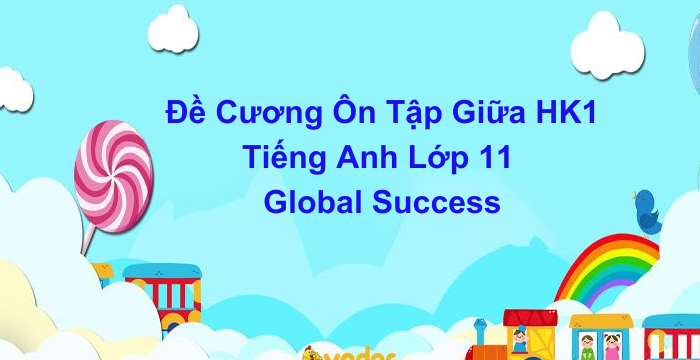
Đề Cương Ôn Tập Giữa Học Kì 1 Tiếng Anh Lớp 11 Global Success (7.11.2025)

Đề Cương Ôn Tập Giữa Học Kì 1 Tiếng Anh Lớp 11 Global Success (3.11.2025)

Đề Cương Ôn Tập Giữa Học Kì 1 Tiếng Anh Lớp 11 Global Success (3.11.2025)

Đề Cương Ôn Tập Cuối Học Kì 2 Tiếng Anh Lớp 11 Global Success (14.05.2025)

Đề Cương Ôn Tập Cuối Học Kì 2 Tiếng Anh Lớp 11 Global Success (18.04.2025)

Đề Cương Ôn Tập Cuối Học Kì 2 Tiếng Anh Lớp 11 Global Success (18.04.2025)

Đề Cương Ôn Tập Cuối Học Kì 2 Tiếng Anh Lớp 11 Global Success (14.04.2025)

Đề Cương Ôn Tập Cuối Học Kì 2 Tiếng Anh Lớp 11 Global Success (11.04.2025)
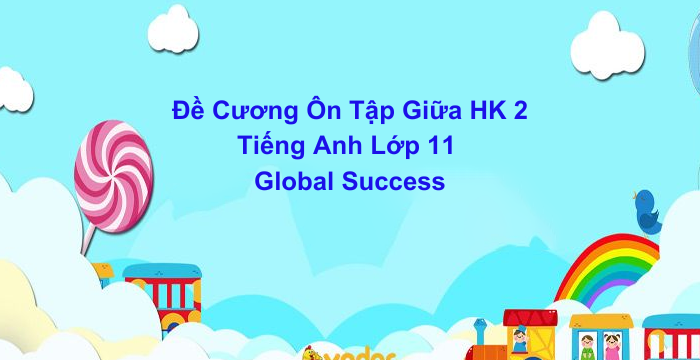
Đề Cương Ôn Tập Giữa Học Kì 2 Tiếng Anh Lớp 11 Global Success (26.03.2025)

Đề Cương Ôn Tập Giữa Học Kì 2 Tiếng Anh Lớp 11 Global Success (24.03.2025)

Đề Cương Ôn Tập Giữa Học Kì 2 Tiếng Anh Lớp 11 Global Success (19.03.2025)

Đề Cương Ôn Tập Giữa Học Kì 2 Tiếng Anh Lớp 11 Global Success (19.03.2025)

Đề Cương Ôn Tập Giữa Học Kì 2 Tiếng Anh Lớp 11 Global Success (19.03.2025)

Đề Cương Ôn Tập Cuối Học Kì 1 Tiếng Anh Lớp 11 Global Success (03.01.2025)

Đề Cương Ôn Tập Cuối Học Kì 1 Tiếng Anh Lớp 11 Global Success (15.12.2024)

Đề Cương Ôn Tập Cuối Học Kì 1 Tiếng Anh Lớp 11 Global Success (15.12.2024)

Đề Cương Ôn Tập Cuối Học Kì 1 Tiếng Anh Lớp 11 Global Success (14.12.2024)

Đề Cương Ôn Tập Cuối Học Kì 1 Tiếng Anh Lớp 11 Global Success (12.12.2024)

Đề Cương Ôn Tập Giữa Học Kì 1 Tiếng Anh Lớp 11 Global Success (07.11.2024)

Đề Cương Ôn Tập Giữa Học Kì 1 Tiếng Anh Lớp 11 Global Success (29.10.2024)

Đề Cương Ôn Tập Giữa Học Kì 1 Tiếng Anh Lớp 11 Global Success (26.10.2024)

Đề Cương Ôn Tập Cuối Học Kì 1 Tiếng Anh Lớp 11 Global Success (06.06.2024)

Đề Cương Ôn Tập Cuối Học Kì 1 Tiếng Anh Lớp 11 Global Success (06.06.2024)

Đề Cương Ôn Tập Cuối Học Kì 1 Tiếng Anh Lớp 11 Global Success (06.06.2024)

Đề Cương Ôn Tập Cuối Học Kì 1 Tiếng Anh Lớp 11 Global Success (06.06.2024)

Đề Cương Ôn Tập Giữa Học Kì 1 Tiếng Anh Lớp 11 Global Success (31.05.2024)

Đề Cương Ôn Tập Giữa Học Kì 1 Tiếng Anh Lớp 11 Global Success (31.05.2024)

Đề Cương Ôn Tập Giữa Học Kì 1 Tiếng Anh Lớp 11 Global Success (31.05.2024)

Đề Cương Ôn Tập Giữa Học Kì 1 Tiếng Anh Lớp 11 Global Success (31.05.2024)

Đề Cương Ôn Tập Giữa Học Kì 1 Tiếng Anh Lớp 11 Global Success (31.05.2024)

Đề Cương Ôn Tập Giữa Học Kì 1 Tiếng Anh Lớp 11 Global Success (31.05.2024)

Đề Cương Ôn Tập Cuối Học Kì 2 Tiếng Anh Lớp 11 Global Success (28.04.2024)

Đề Cương Ôn Tập Cuối Học Kì 2 Tiếng Anh Lớp 11 Global Success (24.04.2024)

Đề Cương Ôn Tập Cuối Học Kì 2 Tiếng Anh Lớp 11 Global Success (21.04.2024)

Đề Cương Ôn Tập Cuối Học Kì 2 Tiếng Anh Lớp 11 Global Success (17.04.2024)

Đề Cương Ôn Tập Cuối Học Kì 2 Tiếng Anh Lớp 11 Global Success (12.04.2024).

Đề Cương Ôn Tập Cuối Học Kì 2 Tiếng Anh Lớp 11 Global Success (12.04.2024)
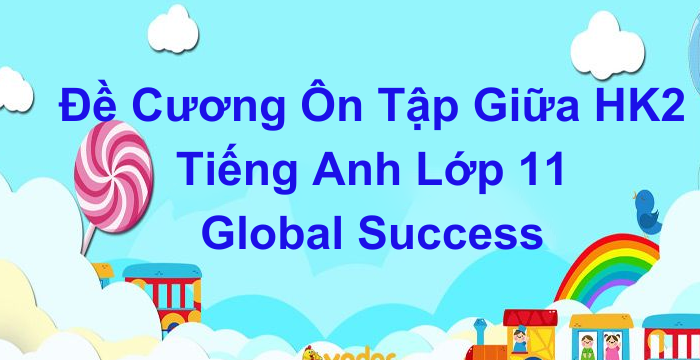
Đề Cương Ôn Tập Giữa Học Kì 2 Tiếng Anh Lớp 11 Global Success (20.03.2024)

Đề Cương Ôn Tập Giữa Học Kì 2 Tiếng Anh Lớp 11 Global Success (18.03.2024)

Đề Cương Ôn Tập Giữa Học Kì 2 Tiếng Anh Lớp 11 Global Success 08.03.2024

Đề Cương Ôn Tập Giữa Học Kì 2 Tiếng Anh Lớp 11 Global Success 07.03.2024

Đề Cương Ôn Tập Giữa Học Kì 2 Tiếng Anh Lớp 11 Global Success 29.02.2024

Bài Đăng Gần Đây

Đề Cương Ôn Tập Giữa Học Kì 2 Tiếng Anh Lớp 7 Global Success (24.02.2026)

Đề Kiểm Tra Giữa Kì 2 Tiếng Anh Lớp 7 Global Success (3.2.2026)
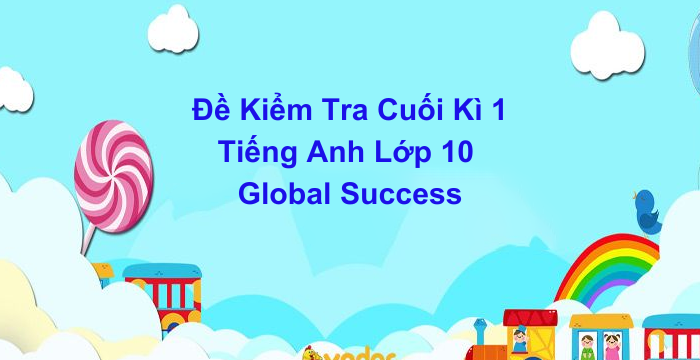
Đề Kiểm Tra Cuối Kì 1 Tiếng Anh Lớp 10 Global Success (02.01.2026)
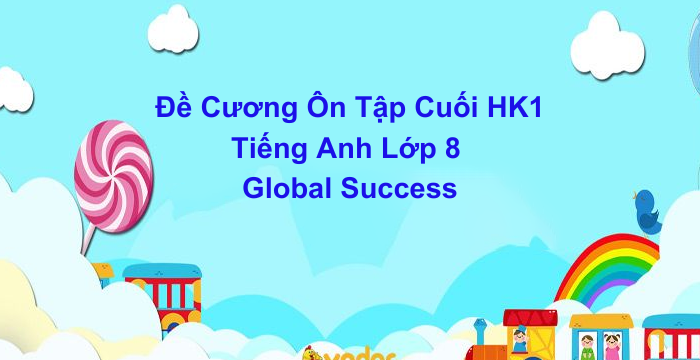
Đề Cương Ôn Tập Cuối Học Kì 1 Tiếng Anh Lớp 8 Global Success (30.12.2025)

